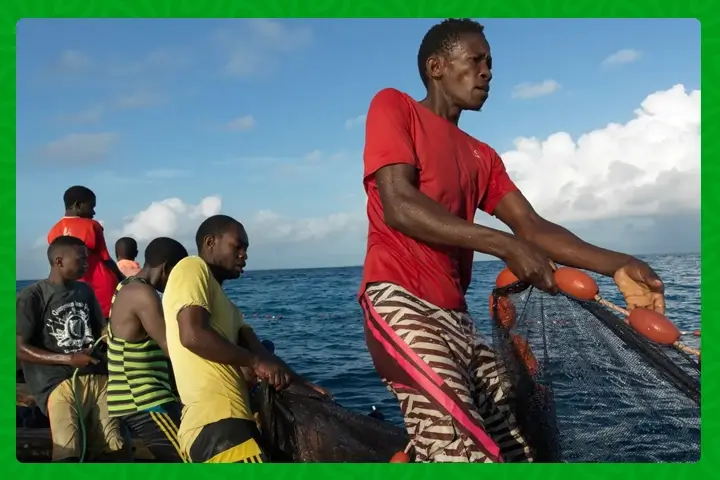
In the azure waters of Lake Tanganyika, the world’s second-largest lake by volume, a pressing concern has gripped Tanzania’s Ministry of Livestock and Fisheries—a concerning 18% decline in fish production over the past four years. As the ripples of overfishing and climate change cast a shadow over this aquatic expanse, Tanzania is taking decisive action to rejuvenate the lake’s once-teeming fish population.
According to Mr. Ambakisye, Chief Fisheries Officer, the stark reality unfolded with fish production on the Tanzanian side plummeting from 104,178 tonnes in 2020 to 85,180 tonnes in 2023. A somber acknowledgment followed – illegal, unreported, and unregulated (IUU) fishing had significantly exacerbated this decline.
Responding to this alarming trend, the Tanzanian government has taken a bold step—a three-month suspension of fishing activities in Lake Tanganyika, effective from May 15, 2024. The objectives are clear: bolster the fish population, rein in illegal fishing practices, address environmental degradation concerns, and ultimately enhance productivity for local fishing communities.
Deputy Minister for Fisheries and Livestock, Mr. Alexander Mnyeti, emphasized that this decision was not unilateral; it emerged from a collaborative effort involving Tanzania and its neighboring countries—Burundi, the Democratic Republic of Congo (DRC), and Zambia.
Chief Fisheries Officer Mr. Simtoe shed light on a survey by the Tanzania Fisheries Research Institute (TAFIRI) in 2022, revealing a population of 144,690 tonnes of ‘migebuka’ and sardines on the Tanzanian side of Lake Tanganyika. However, Katavi region bore the brunt of the decline, witnessing a staggering 45% reduction in fish harvests from 25,895 tonnes in 2020 to 14,335 tonnes in 2023.
Lake Tanganyika is a lifeline for millions across Tanzania, Zambia, DRC, and Burundi, providing sustenance and income through its rich aquatic biodiversity. Yet, post-harvest losses, inadequate handling and processing techniques, the throes of climate change, and unsustainable fishing methods threaten the lake’s future as a reliable source of livelihood and nutrition.
Mr. Simtoe stressed, “The government’s proactive measures aim to address these concerns and ensure the long-term sustainability of the lake’s ecosystem.”
In the face of adversity, Tanzania’s resolute actions not only signal a commitment to revitalizing Lake Tanganyika but also underscore the need for collaborative, region-wide efforts to safeguard the vitality of our shared aquatic resources. As the suspended fishing activities echo across the lake, they carry the promise of a rejuvenated ecosystem and a sustainable future for all who depend on its bounty.


















